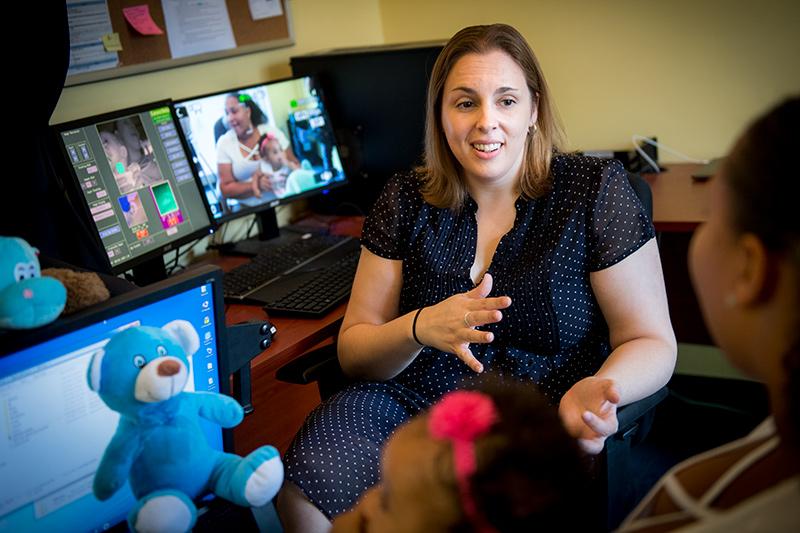Lab uses face-processing data to investigate early learning
A newly published paper co-authored by Julie Markant, assistant professor in the School of Science and Engineering, proposes a new theoretical model to examine the ways infants learn and retain information.
The paper, “Attention and Perceptual Learning Interact in the Development of the Other-Race Effect,” was published in May in Current Directions in Psychological Sciences.
Markant, who runs the Tulane Learning and Brain Development Lab and teaches in the Department of Psychology, and her colleague, Lisa S. Scott of the University of Florida, reviewed existing literature on the face-processing skills of infants. But even though there was plenty of literature to review, there seemed to be gaps — specifically, no crossover between attention, which Markant studies, and perceptual learning.
Babies learn to tell the difference between faces of the same gender and race based on their daily experiences.
“As babies are gaining experience with faces and they start to become more expert, how does that affect the way that they’re paying attention to faces? And then how does the way that they’re paying attention to faces help them become more expert, and then how does that keep going in a loop — what we’re calling reciprocal interaction,” Markant said.
The paper’s publication opened Markant’s research up to learn more about the “other-race effect,” an infant’s tendency to recognize a face of his or her own race before a face of another race, an effect that is dictated by experience with the races of the people they most commonly encounter.
“[Existing research] hasn’t said exactly how does this happen, what is the process by which experience becomes encoded or internalized?” Markant said. “That’s where we think attention comes in.”
The lab continues to recruit participants between 4 months and 8 years of age for eye-tracking experiments. The sessions last less than an hour. Interested parents can find out more about the lab and its research and register their child to participate at https://lbdlab.tulane.edu/for-parents/.


